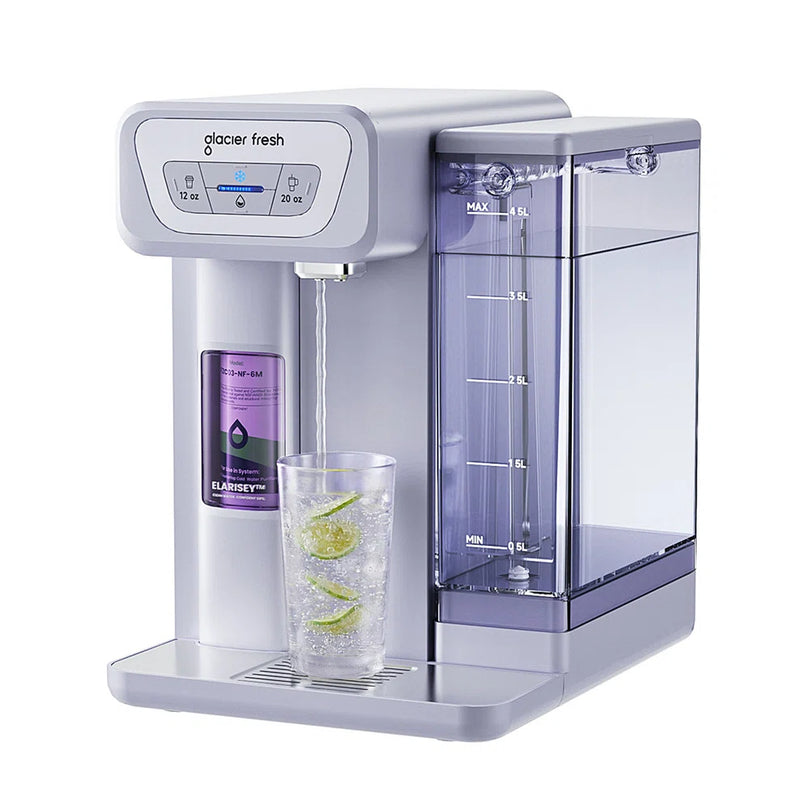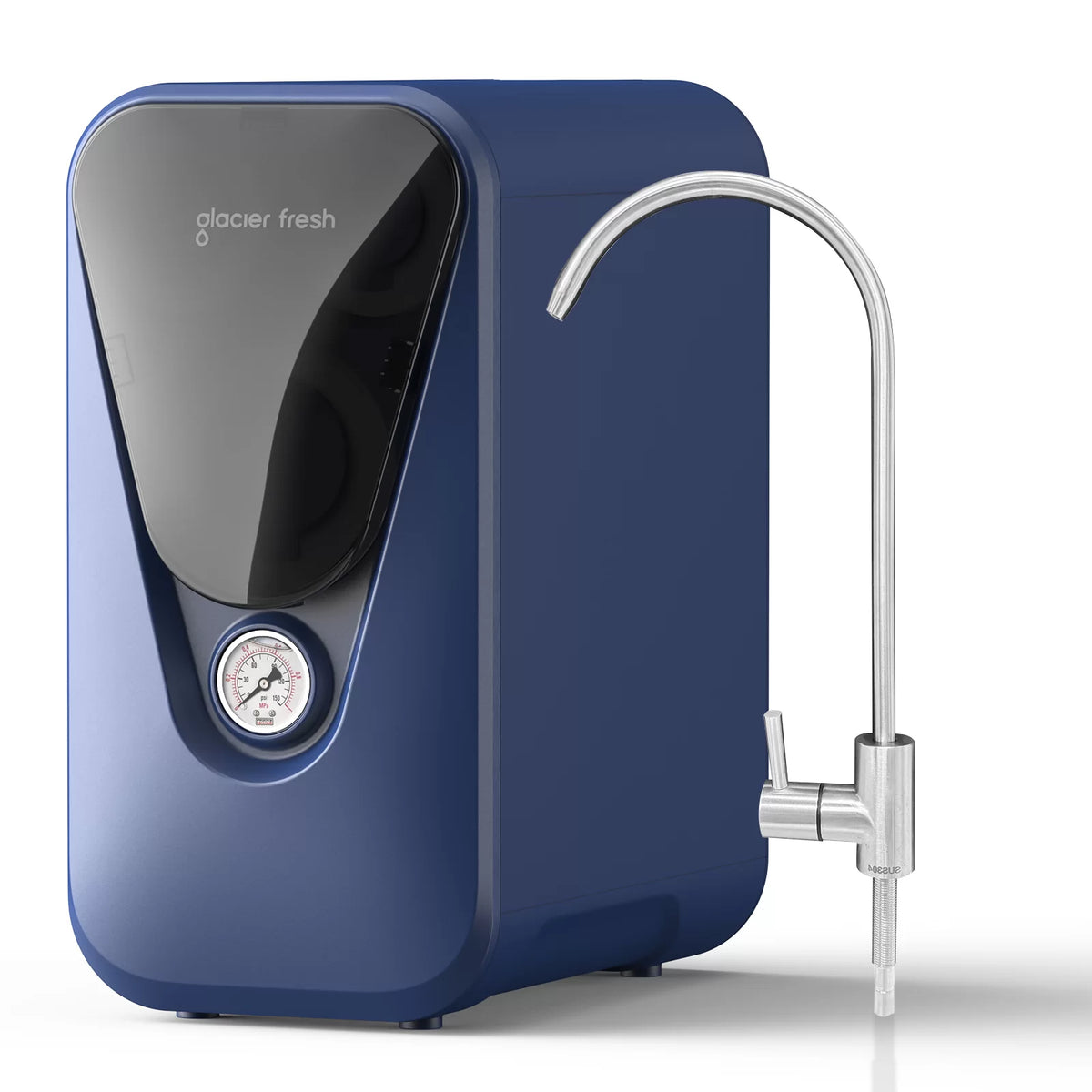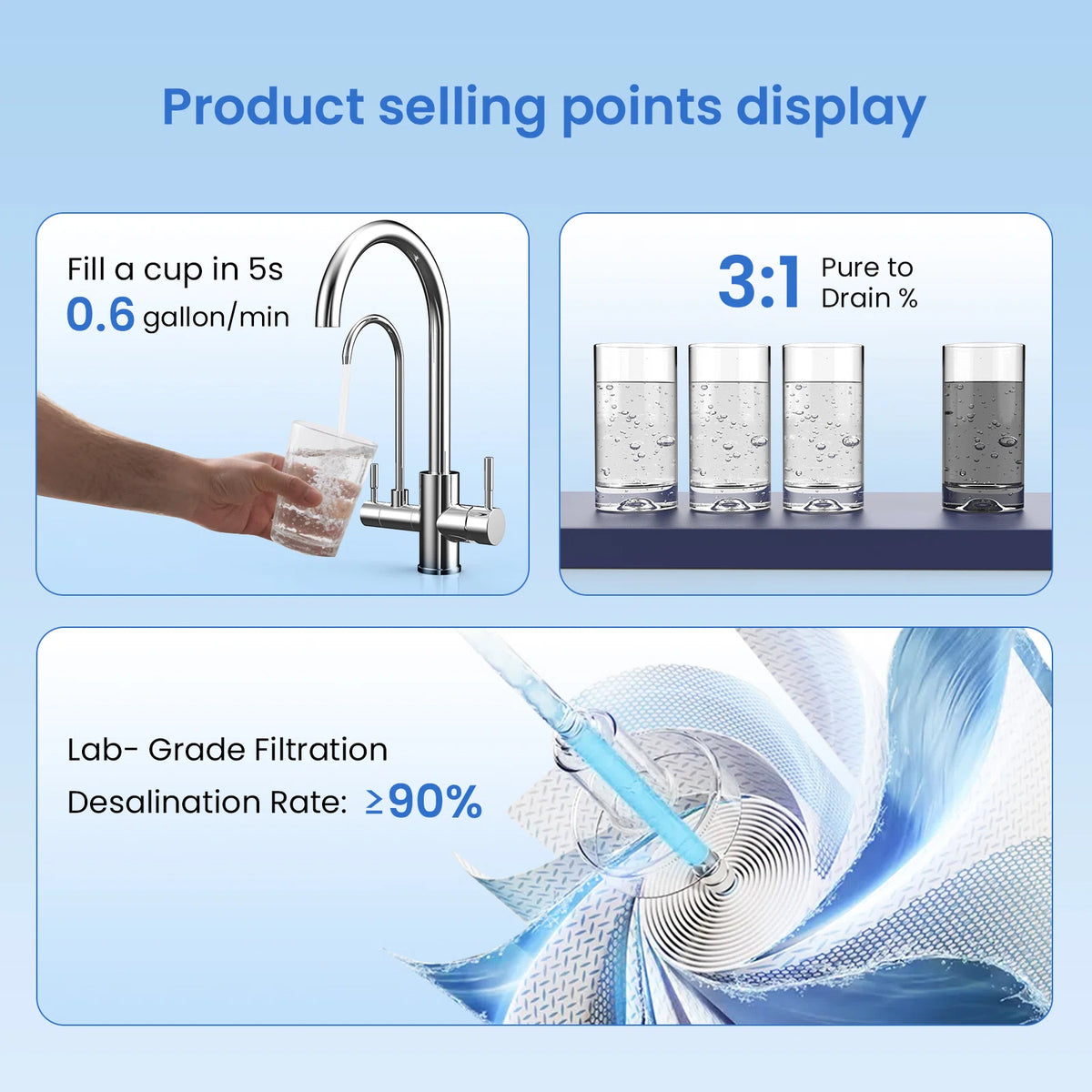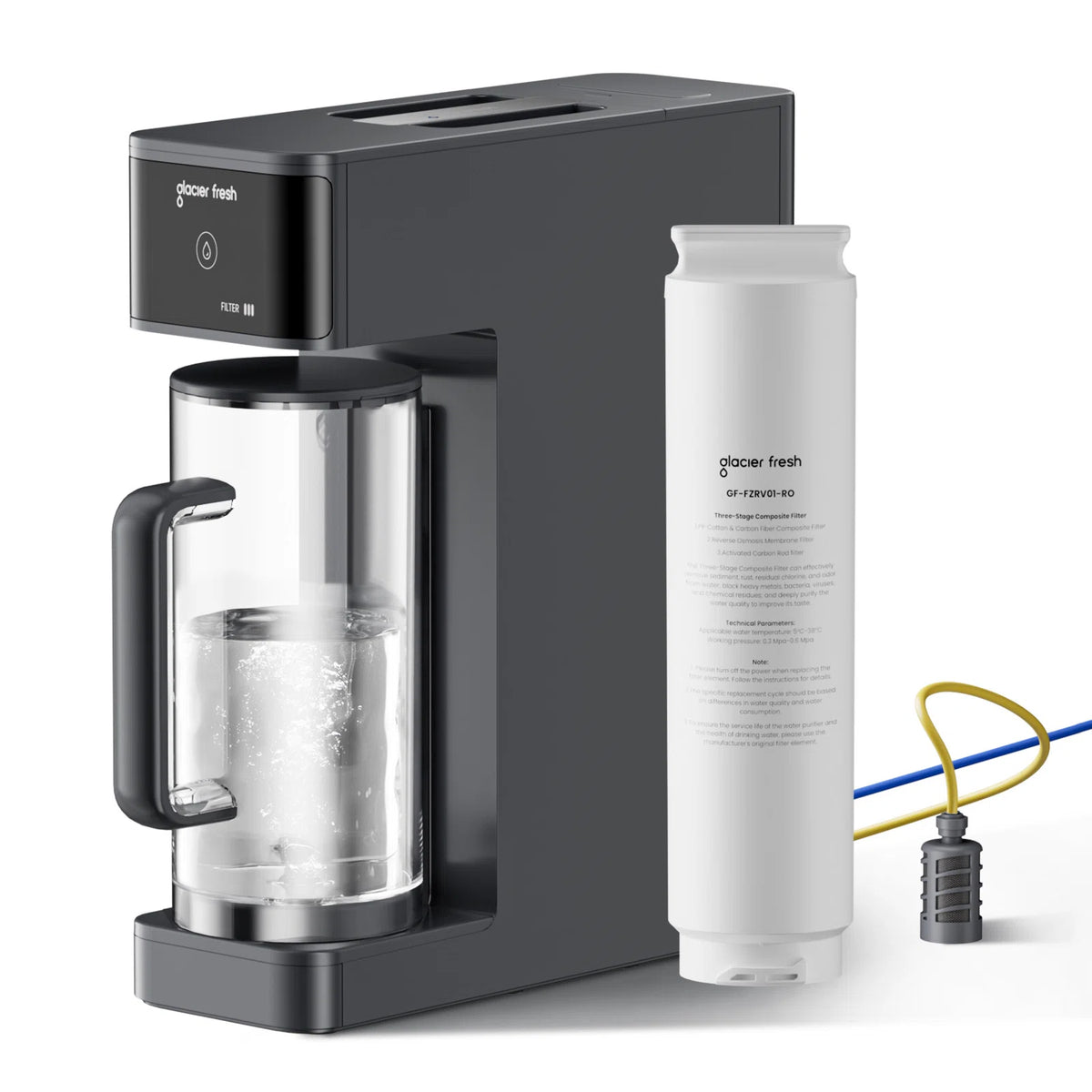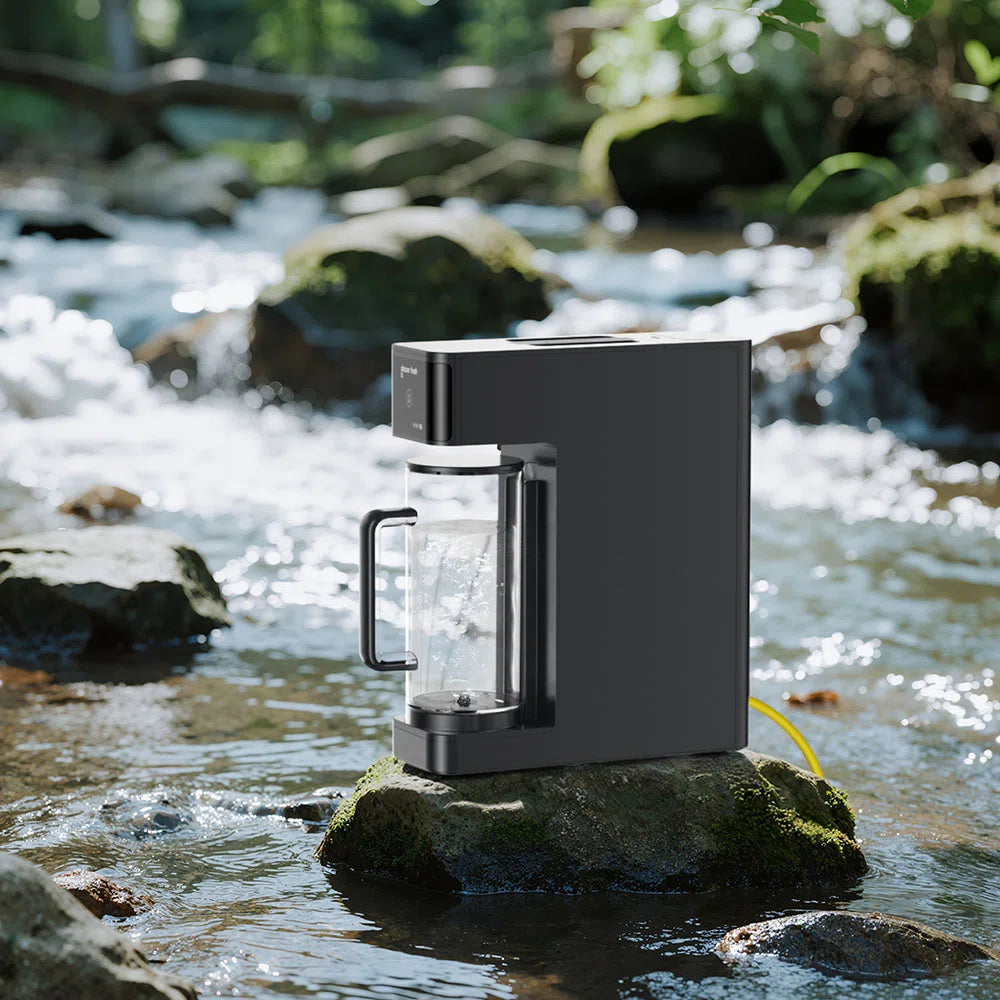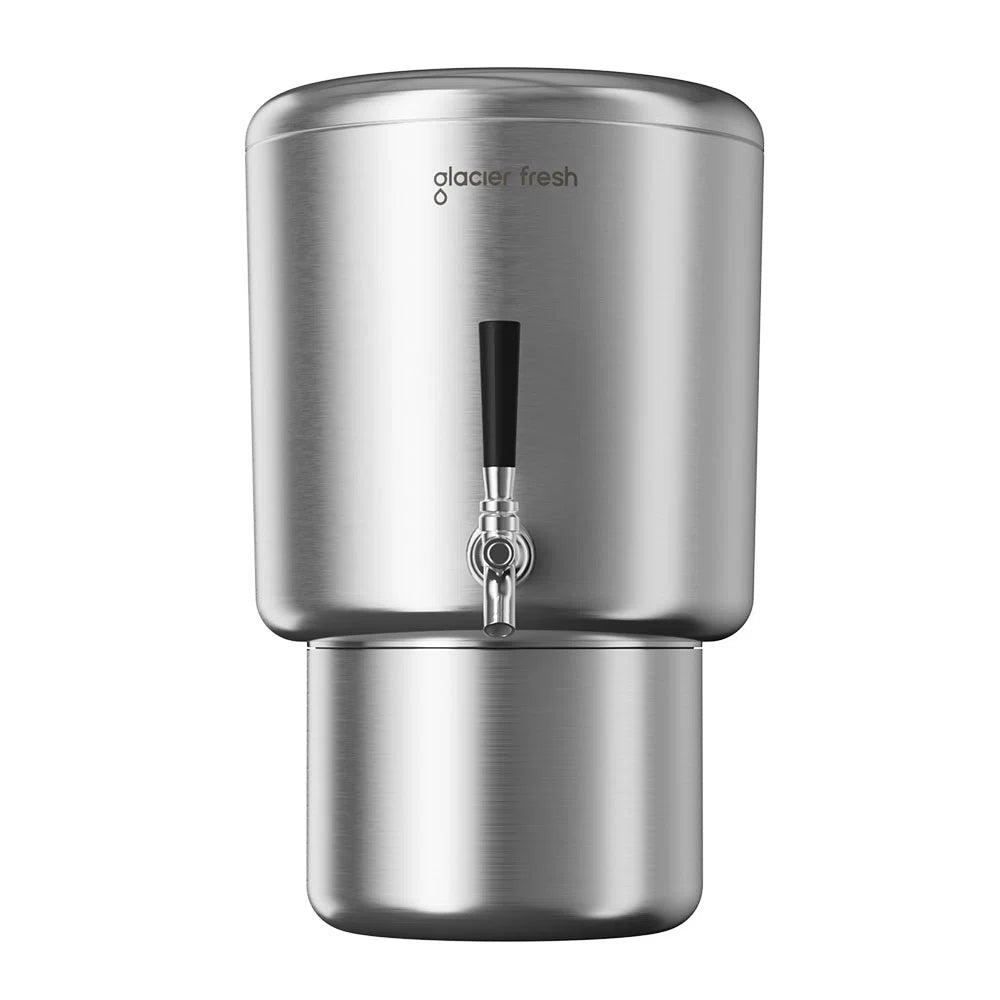Table of Contents:
What Are Kidney Stones?
What Risks May Occur with Kidney Stones
How to Prevent Kidney Stones?
FAQs
Conclusion
Kidney stones are a painful disease that affects millions of individuals across the globe. These crystalline deposits are also hard and are deposited in the kidneys when some minerals and salts accumulate in the urine. Although kidney stones may be very uncomfortable, the good news is that you can do something to reduce your chances of getting them.
In this article, we shall describe what kidney stones are, the usual causes and symptoms, and practices you can adopt to avoid kidney stones. We shall also present some useful products, which can help in making sure that you consume clean and healthy water. This is a crucial step in preventing kidney stones.
What Are Kidney Stones?

Kidney stones are stiff formations that are developed when the urine you pass has large amounts of minerals such as calcium, oxalate, or uric acid. When these substances are crystallized, they are attached, forming stones of different sizes. A few kidney stones are small like grains of sand, and some are as big as a golf ball.
Kidney stones are not always life-threatening; however, they are very painful and, in most cases, need to be removed or broken with the help of a medical professional.
Common Causes of Kidney Stones
Dehydration is the most prevalent cause of kidney stones. When you are not drinking sufficient water, your urine becomes more concentrated. This concentrated urine increases the ease with which the minerals crystallize and form stones. Other causes include:
Dietary causes: Excessive consumption of oxalate foods, excess sodium, or excessive animal protein.
Family history: In case your relatives have had kidney stones, it is more likely that you are also prone to kidney stones.
Medical conditions: Problems such as urinary tract infections, obesity, or some digestive disorders may predispose a person.
Some drugs or vitamins: Too many calcium pills or too much vitamin C can also play a role.
Common Symptoms of Kidney Stones
Kidney stones do not necessarily give you any symptoms until they begin to shift to the ureter (the duct between the kidney and the bladder). When this occurs, you can develop:
-
Extreme lower abdominal or side, or back pain.
-
Pain while urinating
-
Urine is pink, red, or brown (with blood)
-
Frequent urge to urinate
-
Nausea and vomiting
-
Fever and chills occur when there is an infection.
These symptoms are also signs that need to be identified as soon as possible to get medical attention and prevent complications.
What Risks May Occur with Kidney Stones
Kidney stones can be considered a minor problem, but they can lead to complications, which may occur in case of improper treatment. Potential risks include:
-
An obstruction in the urinary tract can lead to kidney damage in case of failure to treat it.
-
Urinary Tract Infections can raise the risk of kidney stones because chronic infection can change urine chemistry and promote stone formation.
-
Frequent kidney stones and thus chronic pain.
-
Kidney failure, in rare and severe cases.
You can take care of your urinary system by learning to prevent kidney stones and avoid these risks.
How to Prevent Kidney Stones?

Below are some of the few and easy habits that you can develop to minimize your chances of developing kidney stones.
Drink Water Throughout the Day
The only method that was found to be very helpful in preventing kidney stones is to remain hydrated. Target: To drink at least 8 glasses of water each day, and more so when you live in hot climates, and also when exercising often. Water aids the effort of dissolving the minerals/salts in your urine, which decreases the possibility of the formation of crystals.
And to drink healthier, filter your water to eliminate impurities. Many people often ask, Is Reverse Osmosis (RO) Water Safe and Healthy to Drink? The answer is yes—when paired with a reliable RO system, it removes harmful contaminants and ensures you’re drinking clean water
Glacier Fresh 800GPD Under Sink Reverse Osmosis System
The Glacier Fresh 800GPD Under Sink Reverse Osmosis System is a high-quality water purification system with optimal features that can be mounted easily under your kitchen sink.
Its 7-stage filtration system captures and filters out as much as 99% of all polluting substances, including chlorine, heavy metals, lead, fluoride, and other contaminants. This answers the concern of Is It Safe to Use a Reverse Osmosis System for Drinking Well Water—the system ensures your family always has safe and great-tasting water. and leaves your family with safe and great-tasting water, all the time. Its small size takes up less space, and the high-flow system brings fresh water to the table more quickly, without waiting.
Key Features
High Capacity -800 Gallons per Day: Good Supply of clean water to large households.
High-Tier 7-Stage Filtration: Clearly kills chlorine, heavy metals, fluoride, PFAS, and more.
Tankless Design: This conserves space and eliminates second-order pollution introduced by water storage tanks.
High velocity: No more waiting to have pure water with a fast flow rate.
Smart Filter Indicator: It allows you to know when you need to change the filter.
Green-Sustainable and Money Saving: Uses less bottled water, which saves money and the environment.
Easy to install: designed to fit under the sink with easy-to-follow instructions.
Purela P01 Water Pitcher – 7 Cup Capacity
The Purela P01 Water Pitcher is easy and fashionable at home or in the office to obtain clean drinking water. It filters out chlorine, removes odors and impurities, and makes your water crisp and refreshing every time you use it. The pitcher can hold 7 cups; it will fit in a very tiny space inside the fridge door, which is why even families or college students, and any other person who needs to increase their healthiness, without a burden of carrying the cup, are in a position to use it.
Key Features
7 cup Capacity: ideal for personal/small family.
Enhanced Filtration System: removes chlorine and heavy metals, and undesirable smell to produce fresher flavour.
Space-Saving Design: Fits very well into refrigerator doors and small countertops.
Ergonomic Handle: easy to carry and pour to the very last drop.
Green Alternative: less usage of plastic bottles.
Simple Replacement of filters: Easy to continuously supply fresh water by replacing filters.
BPA-Free Construction: Construction that is safe and durable to use daily.
Their use alone, besides being more beneficial and healthy, assists you in preventing kidney stones naturally.
Eat Fewer Oxalate-rich Foods
Oxalate is a natural product in a variety of foods, but excessive oxalate intake can also lead to the development of kidney stones. Typical common foods that contain oxalates are spinach, beets, nuts, and chocolate. Though you need not take these foods out, it would be wise for you to take the foods in reduced amounts, especially if you have a history of kidney stones. When the oxalate-containing foods are eaten together with the calcium-containing foods, it can assist your body in digesting them in a better way.
Choose a Diet Low in Sodium and Animal Protein
Excessive sodium elevates calcium in the urine, which can cause stones. Your consumption of processed foods and fast foods, as well as salty foods, can be reduced. Similarly, too much red meat, poultry, and seafood may also increase uric acid, another cause of kidney stones.
Instead, make the healthier food choice by eating whole grains, fruits, vegetables, and low-energy protein foods (i.e., beans or fish).
Keep Eating Calcium-Rich Foods, But Use Caution with Calcium Supplements?

Some people think that they should not take calcium in order to avoid stones, but the opposite is the case. In your intestines, the calcium mixes with oxalate so that it does not get into your kidneys. It is possible that calcium-laden foods such as milk, cheese, and yogurt can prevent stones after all.
But calcium supplements must be taken in moderation. Supplements are more likely to put you at higher risk, particularly when the dosages are high, so you should seek advice before taking them. It is preferable that one get calcium through food whenever possible.
FAQs
Q1: Does drinking bottled water only help to avoid kidney stones?
Not necessarily. Despite the convenience of the bottled water, there are still chances that it may have some minerals or impurities. A good filtration system, such as the Glacier Fresh Under Sink RO System or the Purela P01 Pitcher, will provide you with high-quality water.
Q2: What is the amount of water that I should drink to avoid kidney stones?
A minimum of 2 to 3 liters daily, but you can change this based on activity and climate. The better you are hydrated, the more crystalline your urine.
Q3: Do kidney stones always qualify to be surgical diseases or not?
No. Smaller stones may tend to play out as the water flow increases and pain is managed. Larger stones might require medical treatment, including lithotripsy or surgery (also extremely rare).
Q4: Are kidney stones hereditary?
Yes, family history can increase your risk, but preventive habits can still reduce your chances of developing them.
Conclusion
Kidney stones are a source of excruciating pain and discomfort; however, you can prevent them. You can significantly reduce your risk by adopting healthy lifestyle practices, particularly by ensuring that you stay hydrated, limit your sodium intake, limit your oxalate intake, and balance your diet.
The greatest thing to do is to drink a lot of clean water, and with the assurance that the given Glacier Fresh Under Sink Reverse Osmosis System and the Purela P01 Water Pitcher are trustworthy and reliable products, it is quite easy to obtain pure, refreshing water daily.
Wondering how to prevent kidney stones? Keep in mind that even slight daily adjustments can mean lifetime kidney health. It is as easy as starting today with minor adjustments and providing your body with the protection it rightfully deserves.







